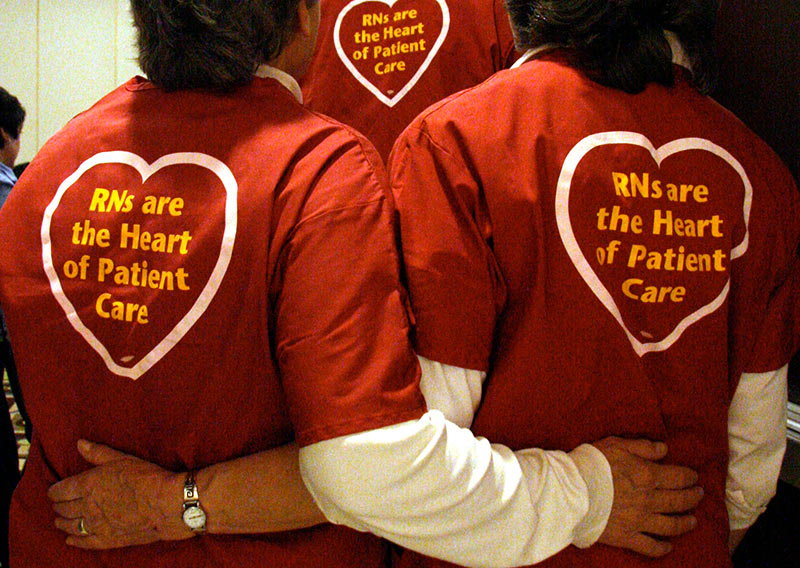Press Release
Nurses at Tenet-Affiliated, St. Joseph’s and St. Mary’s Hospitals in Tucson, Intend to Hold Pickets May 28

RNs Urge Hospitals to Invest in Nursing Staff and Patient Care
Registered nurses at Tenet-affiliated St. Joseph’s, and St. Mary’s Hospitals in Tucson, will hold informational pickets May 28 urging management to invest in nursing staff. This will improve the recruitment and retention of experienced RNs, and ensure optimal patient care, say nurses.
Informational pickets will also be held on May 28 at 10 other Tenet-affiliated hospitals in California and Florida. Nurses at Tenet facilities in El Paso, Texas will hold a rally on the same date.
“The nurses at St. Mary’s are committed to providing our patients with the best care possible,” said Christine Valenzuela, an RN in the medical ICU at St. Mary’s Hospital. “When staffing is in alignment with what research shows is optimal for patient care nurses are a better able to fulfill this commitment.”
What: Registered nurses to hold informational picket.
When: Tuesday, May 28 – 6:15 p.m. - 8:15 p.m.
Where: St. Mary’s Hospital, 1601 W. St. Mary’s Road, Tucson, Ariz.
What: Registered nurses to hold informational picket.
When: Tuesday, May 28 – 6:15 a.m. - 8:30 a.m.
Where: St. Joseph’s Hospital, 350 N. Wilmot Road, Tucson, Ariz.
According to well-established research there is a clear link between RN staffing levels and good patient outcomes. For example, research shows that every patient over four assigned to one nurse in a medical/surgical unit, could increase mortality by seven percent per patient. The staffing grid at St. Mary’s Hospital allows for up to six patients per nurse in the medical/surgical units.
Research suggests that a safe patient load per nurse in a progressive care unit, which is one step down in acuity from the ICU, is one nurse for every three patients. At St. Joseph’s the staffing grid allows for up to eight patients in the progressive care unit. The staffing grid at St. Joseph’s also allows for three infant patients per nurse in the neonatal intensive care unit when it is widely accepted that a ratio of one nurse for every two infants at most is best and often, optimal care requires that a nurse focus on one infant patient assignment only.
“All our patients are more likely to get quality care without delay when the hospital invests in nursing staff and patient care,” said Justine Rhykus, an RN in the ICU at St. Joseph’s Hospital. “We want our hospital to excel in delivering quality patient care. To do that, we want the hospital to invest in strengthening the recruitment and retention of nursing staff.”
The 957 RNs that work at both hospitals are members of National Nurses
Organizing Committee (NNOC), and are in ongoing contract negotiations. NNOC is affiliated with National Nurses United, the largest and fastest growing union of registered nurses in the United States with 150,000 members. NNU plays a leadership role in safeguarding the health and safety of RNs and their patients and has won landmark legislation in the areas of staffing, safe patient handling, infectious disease and workplace violence prevention.